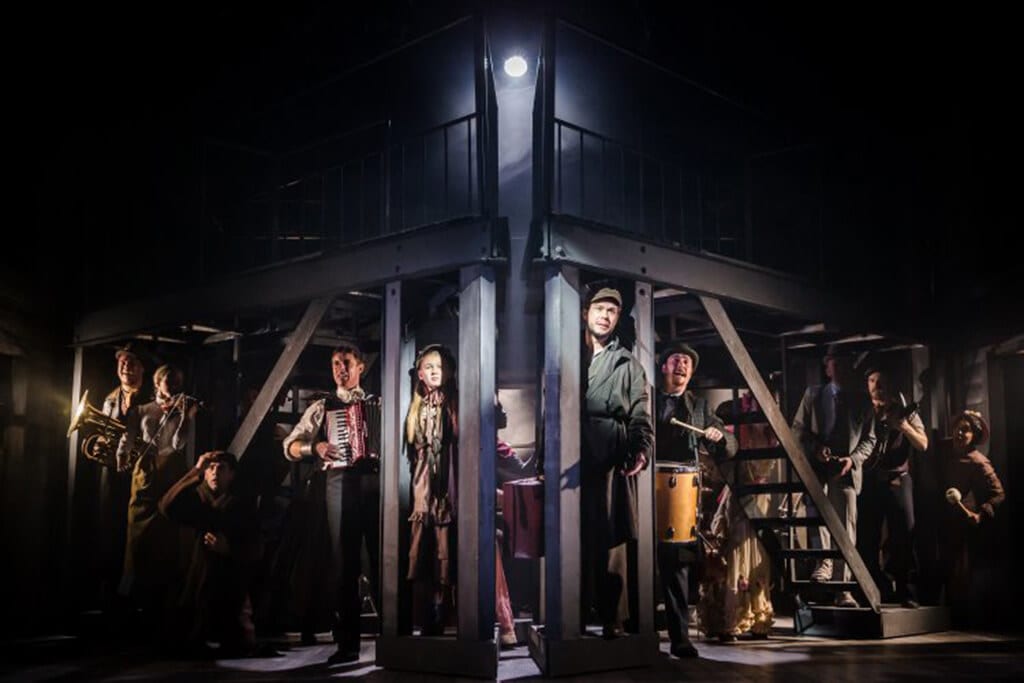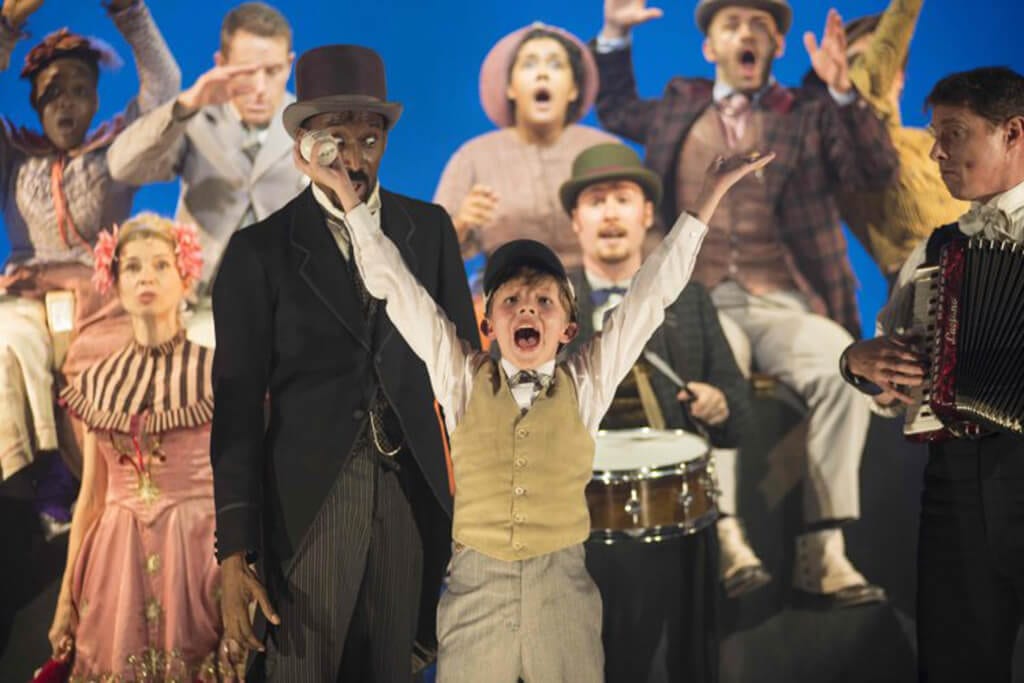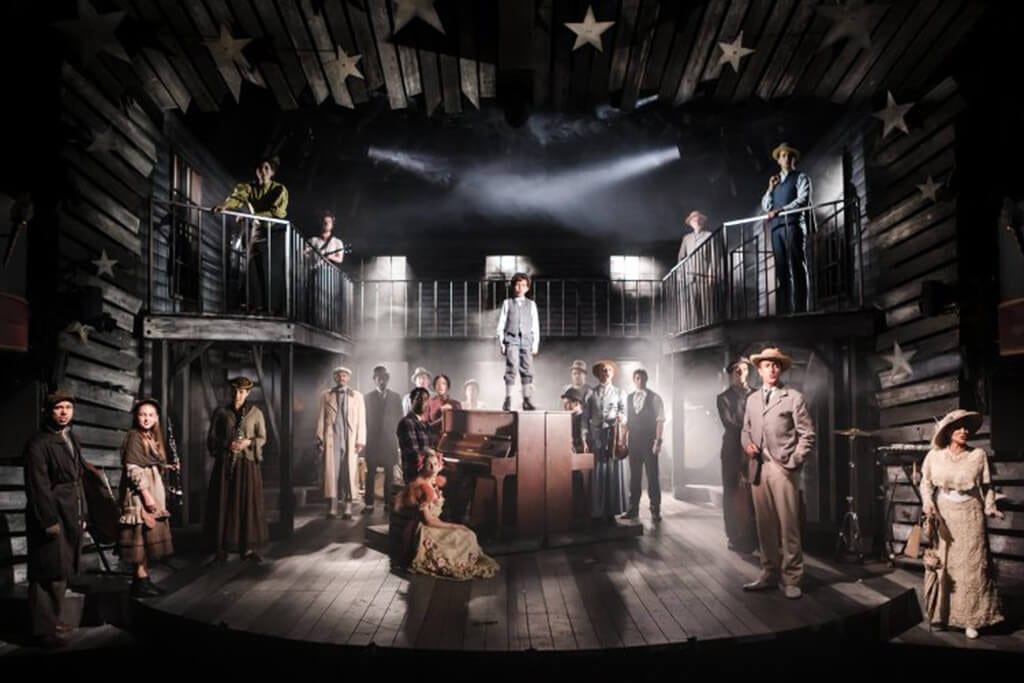Here we are squeezed into the grand and squat Charing Cross theatre, the sound of a train overhead like thunder, and bang on cue. A fragmented boardwalk peppered with wooden stars frames the stage like a discount sticker but more importantly suggesting that the immigrants – the docks – are what make up the stars and stripes of America. On the dawn of another painful and disillusioning election for the presidency comes a reboot of Ragtime, a dazzling song and dance about race, movement and stagnation in the land of opportunity.
Tateh (Gary Tushaw) arrives in New York fresh from Latvia with nothing to his name but a young daughter and a knack for creating silhouettes for passers-by. Celebrities (Evelyn Nesbitt [Joanna Hickman), Harry Houdini [Christopher Dickens]), social figures (Booker T. Washington (Nolan Frederick)), innovators (Henry Ford [Tom Giles]) and whoever else catches his eye. This, too, is the format that the plot takes; a collage of fleeting insights without awarding any ‘main’ character particular weight. Inevitably, though, certain characters and events do charge the performance more than others, despite this being a relentlessly energetic a musical. You really don’t get much of a chance to breathe for the first 15 minutes.
Coalhouse Walker Jr. (Ako Mitchell) is a black pianist in America playing – and playing to – rag-time. His struggle for equality is upended after seeking a policeman to arrest a man who is trying to prevent him travelling. The police look the other way, Coalhouse returns to find his vehicle (literally his piano) in ruins, along with his dreams of genuine social and geographic mobility. Seeking justice for her husband, Sarah (Jennifer Saayeng) is murdered and the pre-interval number ‘Till We Reach That Day’ marks the premature climax of the night and highlight of the show. The ensemble spread down the aisles and the audience suddenly find themselves within the diegesis and in the face of all-too-familiar social and racial turmoil. Generally the death scenes of the evening initiate the most unusual and interesting numbers. The saved funds for Sarah’s wedding are instead used for her funeral. Her Dance Macabre is loud and confrontational rather than pitying, giving the ragtime style a sickly slant that hovers like a dark cloud over the ruckus of silk ties and eye-lashes throbbing about the bar during the interval.
So Coalhouse’s subsequent rampage of burning and hostage taking is dampened slightly. There’s a brilliant symmetrical chaos about Ewan Jones’ choreography and Tom Rodgers and Toots Butcher’s dynamic set design which mimics and complements the kaleidoscopic mob of characters. Not even that though can maintain the urgency and vibrancy of the first act. Because of the defined, short duration of a musical or a play, the juxtaposing fortunes and emotions of each disparate character sort of cancel each other out, especially as the crowd lose keenness a little into the second act.
Nonetheless, the performance is alive, wild and vivid enough to warrant the tag: ‘very good British adaptation of a truly American musical.’ The acting was superb and the singing was powerful (even if it could have been more restrained at points.) Somewhat expectedly toward the end it did seem that the stage was becoming a saturated caricature of my private train of thought which meandered cautiously toward disgustingly real avenues such as ‘Trump’, ‘Election Day’, ‘Black Lives Matter’, ‘America.’; all of these brought dark richness to even the twee-est, most sparkly dandy-isms of the evening.





